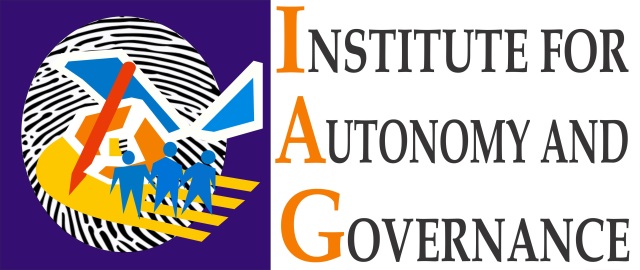 |
The Institute for Autonomy and Governance (IAG), an independent public policy center devoted to the development of autonomy and good governance for Mindanao peace, makes public our analysis and recommendations on the pending legislation of the Basic Law for the Bangsamoro Autonomous Region (House Bill 5811 & Senate Bill 2894).
Four (4) Considerations
First, peace agreements between the Philippine government and the Moro revolutionary fronts from the Tripoli Agreement in 1976, Final Peace Agreement in 1996 to the Comprehensive Agreement on the Bangsamoro (CAB) in 2014 are good roadmaps for the evolving development of meaningful autonomy for peace in Muslim Mindanao.
Second, the full implementation of peace agreements with the Moro fronts is not possible under the country’s prevailing constitutional, legal and political environment. Without public support and legitimacy in the country’s laws and the constitution, the CAB and the BBL cannot be implemented meaningfully and the gains and successes so far achieved are in danger of being further undermined.
Third, more powers and resources in policy and law for Muslim Mindanao will not instantly result in successful autonomy. The ARMM has key powers under its Organic Law that to date are not implemented primarily because of weaknesses in the national bureaucracy to effect real devolution and the timidity and lack of capacity of the autonomous government to assert its powers as a matter of law.
Fourth, the implementation of all peace agreements and legislation of any Basic Law must be inclusive. An autonomy arrangement “franchised” by a group or individual is bound to fail. Processes and structures moving forward must involve and supported by all key stakeholders including minority groups.
State of BBL Legislation
The substitute bills (HB 5811 and SB 2894) depart from the proposed BBL in varying degrees. The passage of the Basic Law dims as Congress tackles the national Budget Law and the 2016 election campaign. Many believe that there is no sufficient time anymore to pass a Basic Law under the Aquino administration. All parties must now accept the hard reality that unless the Philippine constitution is amended, existing peace agreements cannot be fully implemented.
Our Call: Meaningful Autonomy & Transition
At this juncture, what we need is a realistic and doable framework that insures a working autonomy and a good transition from the ARMM to the Bangsamoro. We identify five (5) pillars of autonomy in H.B. 5811 and S.B. 2894 that are “big leaps” for autonomy in policy and practice. These are the “seeds” for the growth of meaningful Bangsamoro autonomy and self-governance in step with successful transition and legal and constitutional reforms.
First, we urge Congress to focus on the legislation of the five (5) pillars:
1. Delineation of powers between the national and regional Bangsamoro government;
2. Parliamentary system with an electoral system that provides equitable allocation for district and party representation;
3. Control of strategic resources by the Bangsamoro government or at least co-management arrangement between the national and regional governments;
4. Block grant;
5. Justice system and Bangsamoro Safety & Security.
Second, we urge policymakers to come up with a realistic, sound and effective transition from ARMM to the Bangsamoro. A successful transition includes policies, processes and structures to effectively implement the five (5) pillars. The transition must provide sufficient time, resources and mechanisms to raise the institutional and human resources capacities of the future Bangsamoro government to build and administer strong autonomous governance infrastructures.